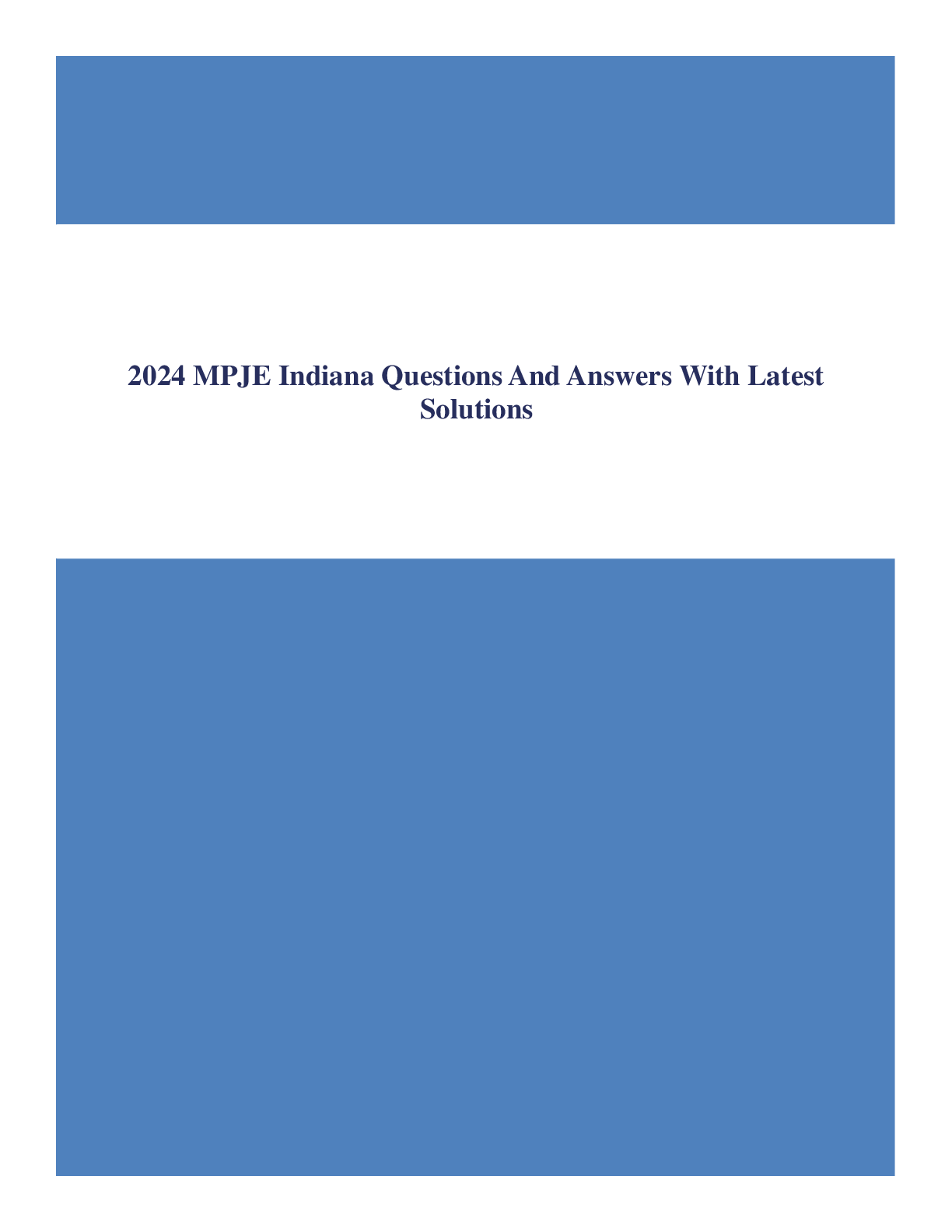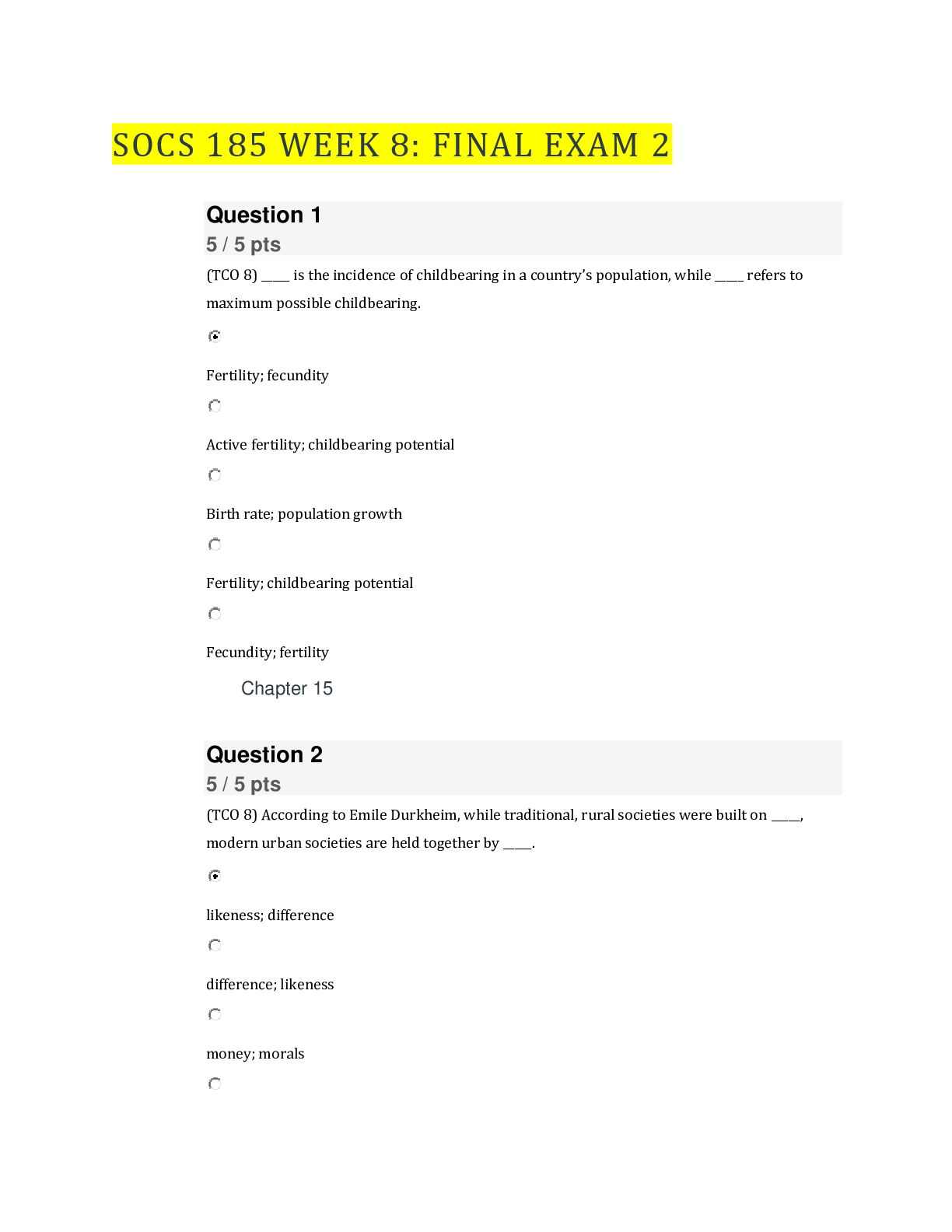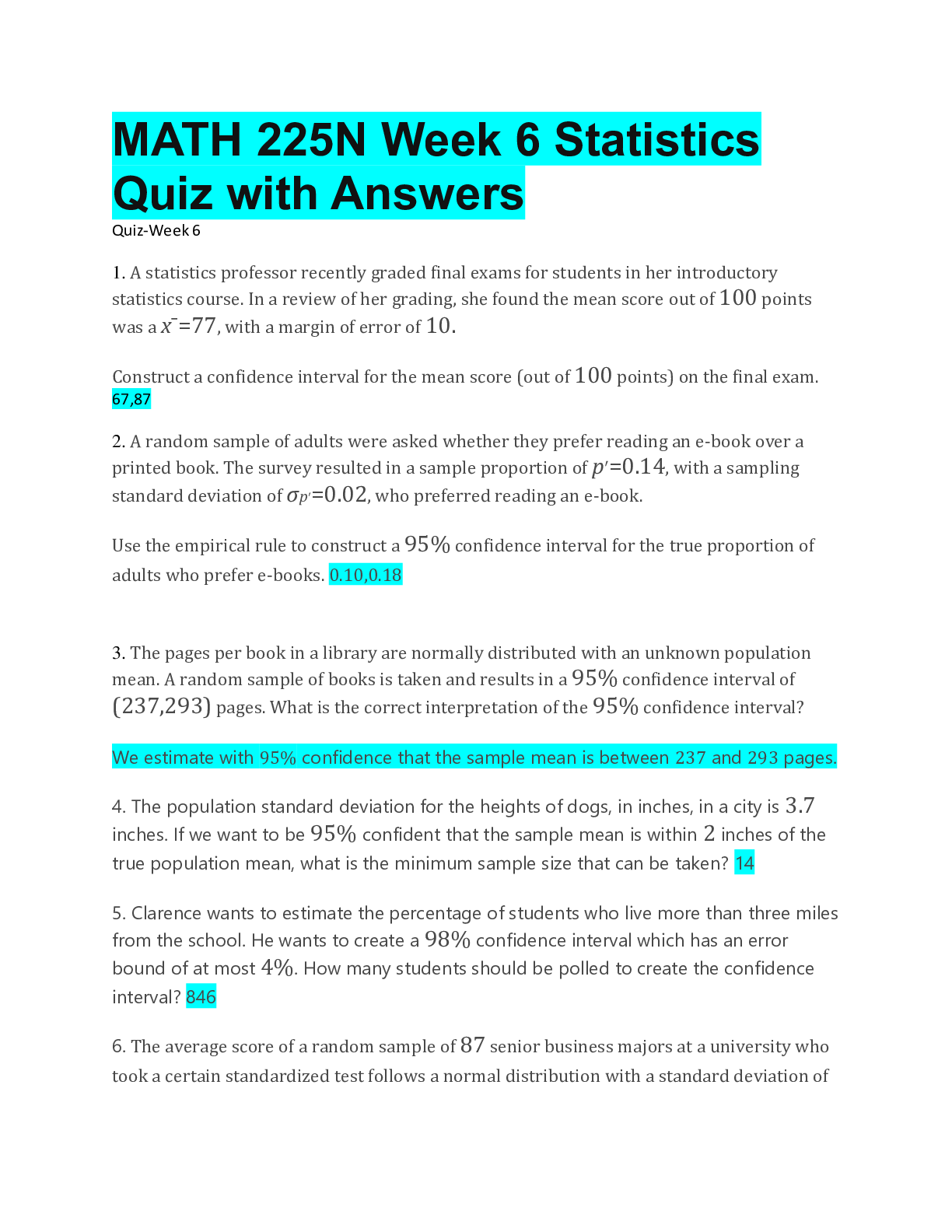Political Science > EXAM > POLI 330N Week 4 Quiz 2 with Answers | LATEST GUIDE (All)
POLI 330N Week 4 Quiz 2 with Answers | LATEST GUIDE
Document Content and Description Below
POLI 330N Week 4 Quiz 2 with Answers Political Science Quiz 1. (TCO 3) Explain which individuals have the most influence on politics via interest groups. (Points : 3) Women The elderly A wid... e variety of people Rich individuals Question 2. 2. (TCO 3) What U.S. groups that are underrepresented by interest groups took to the street in inner-city riots in the 1960s, thus demonstrating what a group or groups might do when they cannot express their grievances through legitimate channels? (Points : 3) Poor people and Hispanic people African American people and women Poor people and African American people Hispanic American people and women Question 3. 3. (TCO 3) A great deal of legislation originates in _____. (Points : 3) economic downturns corporate boardrooms specialized agencies secret Question 4. 4. (TCO 3) In countries where _____, the courts become an arena of interest-group contention. (Points : 3) public defenders are unavailable the rule of law is strong judges have little power the rule of law is weak Question 5. 5. (TCO 3) Large parties in particular can be analyzed as _____. (Points : 3) generations of like-minded voters coalitions of interest groups team-led organizations based around a theme trustworthy representatives of national interest Question 6. 6. (TCO 3) The American electoral system is based on the British “first past the post” (FPTP) system, named so because _____. (Points : 3) third parties can “post” to earn representation major parties are subject to intense scrutiny by third parties it resembles a horse race; even a nose better wins it tends to promote more equal representation Question 7. 7. (TCO 3) Today’s voters tend to be _____ loyal to their parties compared to the past. (Points : 3) more less similarly equally Question 8. 8. (TCO 3) Why do Americans vote so little? (Points : 3) Typically, given the enormous number of immigrants the United States plays host to, most U.S. nonvoters are poorly versed in the tradition of voting, and are therefore are largely unengaged by most elections. Typically, more than half of U.S. nonvoters say they that while they are interested in and satisfied with candidates, they still feel that their vote makes no difference or that none of the candidates are really good, and the two large parties may not offer an interesting or clear-cut choice. Typically, most U.S. nonvoters say they are uninterested in or dissatisfied with candidates, feeling their vote makes no difference or that none of the candidates are really good, and the two large parties may not offer an interesting or clear-cut choice. Typically, most U.S. voters find it impossible to convince others to vote, despite the fact that nonvoters are most likely to vote if convinced by those close to them. Question 9. 9. (TCO 3) What impact does beginning to pay taxes have on young people’s relationship to voting? (Points : 3) It tends to make them more likely to vote, but less likely to work for a given campaign. Beginning to pay taxes tends to make them less interested in elections. It tends to make them more liberal in their voting. As they begin paying taxes, they become more interested in elections. Question 10. 10. (TCO 3) Why might factory workers in small towns feel a different sense of the stakes elections hold than executives and professionals? (Points : 3) Factory workers in small towns may perceive a great deal of difference between candidates, noticing considerable change from one administration to another, and executives and professionals feel generally less involved but still perceive a direct correlation between who wins and their personal fortunes. Factory workers in small towns may perceive little difference between candidates, noticing little change from one administration to another, and although executives and professionals share this sense of noticing little change from one administration to another, they still perceive a direct correlation between who wins and their personal fortunes. Factory workers in small towns may perceive little difference between candidates, noticing little change from one administration to another, and executives and professionals feel involved and perceive a direct correlation between who wins and their personal fortunes. Executives and professionals may perceive little difference between candidates, noticing little change from one administration to another, and factory workers in small towns feel involved and perceive a direct correlation between who wins and their personal incomes. [Show More]
Last updated: 2 years ago
Preview 1 out of 4 pages

Buy this document to get the full access instantly
Instant Download Access after purchase
Buy NowInstant download
We Accept:

Reviews( 0 )
$12.00
Can't find what you want? Try our AI powered Search
Document information
Connected school, study & course
About the document
Uploaded On
Feb 20, 2021
Number of pages
4
Written in
Additional information
This document has been written for:
Uploaded
Feb 20, 2021
Downloads
0
Views
47


























